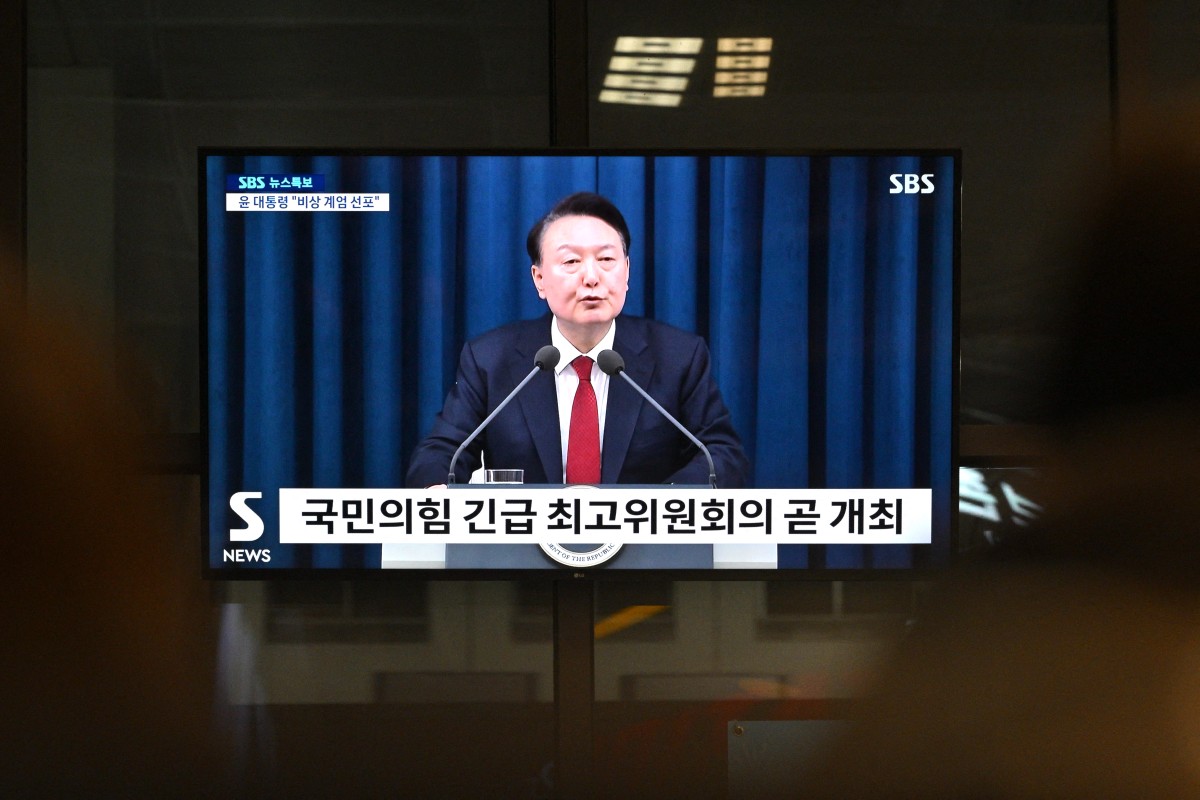South Korean President Yoon Suk Yeol declared martial law on the night of December 3, when most South Koreans were preparing to go to bed, forcing lawmakers to push through soldiers to enter the National Assembly to repeal the decree, while protesters called for President Yoon Suk Yeol to resign.
By dawn on December 4, President Yoon Suk Yeol had given in - agreeing to lift martial law.
Key events of the declaration of martial law
President Yoon Suk Yeol declared martial law at around 10:30 p.m. local time on December 3 in an unannounced televised address, accusing the main opposition party of being pro-North Korea and engaging in “anti-state” activities.
He was referring to the opposition Democratic Party, which holds a majority in parliament, moving to impeach South Korea's top prosecutors and rejecting the government's budget proposal.
Martial law refers to the temporary leadership of the military in times of emergency. Under the South Korean Constitution, the president has the power to declare martial law. CNN reported that the declaration of martial law sent shockwaves across South Korea and triggered a rare late-night political confrontation.

In a country with a strong tradition of contemporary free speech, President Yoon Suk Yeol's military decree banned all political activity, including protests, rallies and actions by political parties. Martial law was also declared to prohibit the rejection of liberal democracy or attempts to overthrow and manipulate public opinion, according to Yonhap news agency.
In the end, martial law lasted only a few hours.
Lawmakers entered parliament, pushing past soldiers who had been deployed to seal off the building. In an extraordinary late-night emergency session, lawmakers present voted unanimously against the martial law decree - a vote the president is legally bound to follow.
South Korea's political parties have come together to protest President Yoon Suk-yeol's martial law, including members of the president's own party. The head of President Yoon Suk-yeol's party has apologized to the public and asked the president to explain.
At 4:30 a.m. on December 4, President Yoon Suk Yeol announced that he would comply with and lift martial law, and that he had withdrawn troops that had been deployed earlier. President Yoon Suk Yeol's cabinet voted to lift martial law shortly thereafter.
Public reaction
Outrage, shock and confusion spread across South Korea - and the world - immediately after martial law was declared in South Korea.
On the night of December 3, people in the capital Seoul rushed home to be with their families, many others gathered in front of the National Assembly building, where law enforcement announced that those present could be arrested without a warrant. Many protesters carried banners and flags calling for the impeachment of President Yoon Suk Yeol.
Some members of parliament appeared to clash with officials outside the parliament building, with television footage showing troops trying to force their way into the main hall. The troops began to retreat hours later as South Korean lawmakers blocked the imposition of martial law.
Post-martial law developments
Much remains uncertain, including what will happen to the president and other top leaders. According to the South Korean presidential office, Chief of Staff Yoon Suk-yeol and more than 10 senior presidential secretaries have submitted their resignations.
South Korea's main opposition party said it would begin impeachment proceedings if President Yoon Suk-yeol does not resign immediately, calling his actions unconstitutional.
President Yoon Suk Yeol's party chief has also called for the defense minister to be removed over his recommendation to impose martial law.
One of South Korea's largest unions announced on December 4 that it will conduct an indefinite general strike until President Yoon Suk Yeol resigns.
As of the morning of December 4, there was still a heavy police presence at the National Assembly building. President Yoon Suk Yeol postponed the first public meeting scheduled for the morning of December 4.
Is martial law unusual in South Korea?
The answer is yes, according to CNN. Martial law is unprecedented in the modern democratic era, a period that has seen South Korea become a major exporter and cultural powerhouse, thanks in part to the global popularity of K-pop and K-dramas.
The declaration of martial law may evoke the country's dark political past. The last time a South Korean president declared martial law was in 1980.









